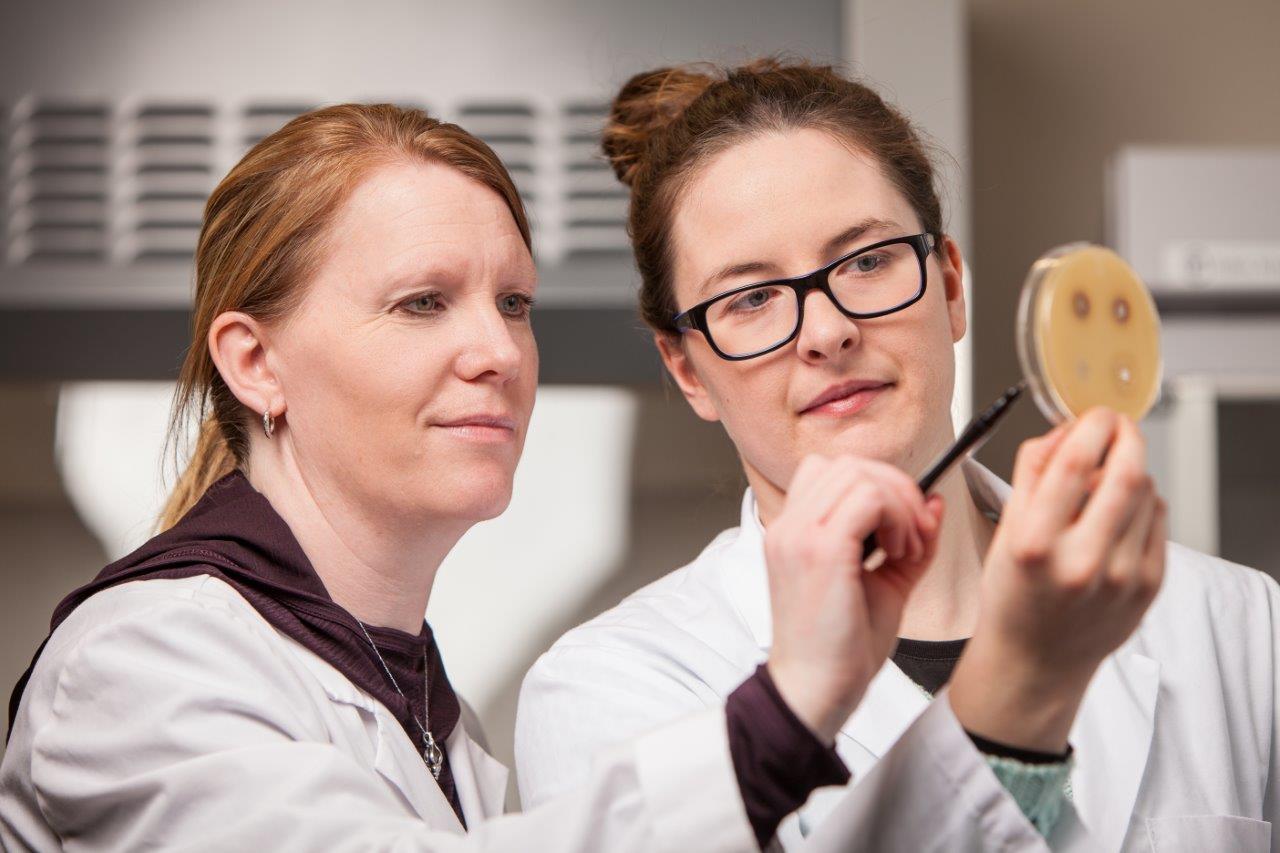LETHBRIDGE, AB – Researchers at Lethbridge College are working to discover and develop new antibiotics by testing plants native to Alberta.
The work of microbiology senior research scientist Dr. Sophie Kernéis and lab technician Leanne DuMontier has received a boost as their lab was recently federally certified to handle Level 2 pathogens – the bacteria, viruses and other microorganisms that cause disease.
Previously, the lab was only able to work on non-pathogens.
“There is a term we use in microbiology – ESKAPE bacteria, which are known to be more resistant to antibiotics than other pathogens,” explains DuMontier. “Those are the pathogenic bacteria that you find causing nosocomial infections in hospitals, such as Staphylococcus aureus. The new certification gives us opportunities to work with bacteria that are known to cause disease.”
According to the World Health Organization, by 2050, 10 million deaths may occur annually if new antibiotics aren’t developed to treat bacterial infections.
Infectious diseases are becoming increasingly immune to treatment and very few new antibiotics have been discovered in recent decades, even as demand has risen.
While antibiotics currently on the market are mainly derived from fungi or bacteria, local researchers are focusing on using plants found in Alberta.
Searching the countryside, Kernéis and her team has already collected 45 samples from 16 different plant families, and they have identified two molecules with antibiotic properties.
“We believe these plants are very special,” says Kernéis, pointing to a variety of factors that make prairie plants ideal for this type of research. “Because of the climate, the people, the animals eating them and infecting them, because of the soil, they have to really compete to stay alive from year-to-year. From our knowledge, nobody has studied these plants for their antibiotic properties, so we think we may have more chance to find unique molecules.”
-with files submitted by Lethbridge College






